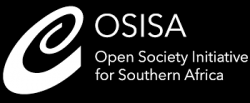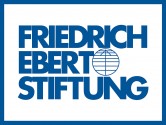This project is being implemented by the South African Institute of International Affairs (SAIIA) in Johannesburg, in partnership with the Institute for Public Policy Research (IPPR) in Windhoek.
Background
The APRM, established in 2003, is Africa’s premier governance self-assessment and promotion tool. The purpose of the APRM is “to foster the adoption of policies, standards and practices that lead to political stability, high economic growth, sustainable development and accelerated sub-regional and continental economic integration through reinforcement of best practices, including identifying deficiencies and accessing the needs for capacity building,” according to its founding documents.
In January 2017, Namibia became the 36th African Union member state to voluntarily accede to the APRM. This signalled President Hage Geingob’s commitment to open governance, reducing corruption and promoting the rule of law. The APRM’s rules require that civil society is meaningfully involved in each country’s review process. Together with government and the private sector, the country’s civil society will diagnose governance strengths and weaknesses, and develop appropriate and applicable remedies.
Potential benefits of the APRM in Namibia
Namibia’s accession provides civil society organisations (CSOs) with an important opportunity. Government’s plans for the process have not yet solidified, so there is an opening to influence them. The APRM also provides a platform to promote a wide range of governance issues that CSOs feel passionately about, through evidence-based submissions. It is a requirement that civil society be involved in a country’s APRM process. But the extent of their involvement is up to the CSOs, depending on how informed, interested and mobilised they are.
There are several potential benefits stemming from Namibia’s accession to the APRM. This African-owned process will produce a comprehensive governance assessment of Namibia’s strengths and weaknesses, and develop recommendations to remedy shortcomings. The APRM can catalyse and bolster reform efforts, and open civic space for CSOs and citizens through the dialogue it promotes. It is also an opportunity for Namibia to explain and showcase its best practices to its peers, and to build capacity in Namibia CSOs. A well-run, inclusive and transparent process can promote accountability in the country, and potentially attract investors and development assistance. And the more SADC countries that are encouraged to accede, the easier it is to deal with cross-boundary issues, including climate, health and migration.
The process so far
- ASPIN was officially launched in February 2018, when SAIIA visited Windhoek and in turn the IPPR visited Johannesburg and Pretoria. At these meetings, a multi-stakeholder Civil Society Working Group on the APRM (WGA) was formed on 19 February 2018.
- A training workshop was organised on 17-18 April 2018 at the Heja Lodge (also see, ASPIN civil society training workshop report, April 2018) just outside of Windhoek, where SAIIA and IPPR, experts from other countries (Uganda and Zambia) and APRM officials ssensitised Namibian civil society on the process and what they can expect. Christine //Hoebes, Namibia’s Deputy Minister of International Relations and Co-operation, delivered the keynote address. A practical session, to identify key governance issues in Namibia was also held, to encourage Namibian civil society organisations to be active in the WGA, that will collectively write a submission for the national APRM process. On 19 April, SAIIA presented on the APRM to the Namibian National Assembly (also see The APRM in Namibia: What is the Parliament’s role? (presentation), April 2018 and Youth Participation in the APRM (presentation), April 2018), whose members appeared very interested in participating in the APRM process.
- SAIIA subsequently visited to Windhoek again on 24-26 July 2018 (also see, ASPIN Civil Society Working Group Meeting report, July 2018), where a session was held with the WGA to further refine the list of key governance issues that the WGA will focus on in its written submission. SAIIA also met with the Namibian National Council and the Spokesperson of the President.
- The next visit took place between 3 and 7 September 2018. SAIIA and IPPR convened a working group meeting, where members reviewed the progress of the written draft submissions for the governance issues previously identified. This included presentations of submissions on unemployment, inequality and poverty, education, health and corruption amongst others. The presentations were followed by rich discussions around the issues raised, further possible evidence and recommendations going forward. SAIIA and IPPR also held discussions with the Ministry of International Relations and Cooperation and the National Planning Commission, which will form the focal point of the APRM process in Namibia. (See ASPIN Civil Society Working Group Meeting Report, September 2018). Namibian civil society was well represented in a meeting with the APRM’s Advance Mission to Namibia on 11 September
- On 22-24 October 2018,a validation workshop took place to finalise the civil society submission. The submission was given to the APRM Country Support Mission and the Namibian APRM National Governing Council in June 2019. To find out more, please contact IPPR.
Key publications
In March 2017, the Institute for Public Policy Research (IPPR) published ‘Namibia and the African Peer Review Mechanism: Committing to Improved Governance’ written by Steven Gruzd, head of the African Governance and Diplomacy Programme at SAIIA. This guide is aimed at Namibian civil society, parliament and policymakers, to explain how and why the APRM arose, what it is and what it entails for the country. It outlines what Namibia can expect from the APRM process, and what is required to undertake a successful, inclusive and meaningful review. It also suggests further reading material to learn more about the APRM.
Find out how a similar project is unfolding in Botswana.
Useful links
- The South African Institute of International Affairs (SAIIA)
- The APRM Secretariat
- The Institute for Public Policy Research (IPPR)
- The APRM Toolkit – an online repository of APRM official documents and academic analysis
- Mastering the APRM: Creating Your Submission
- Monitoring APRM Implementation: A Civil Society How-To-Guide
- The APRM: Progress and Opportunities for Namibia (presentation), February 2018
- Keynote Statement by Honourable Christine //Hoebes, Deputy Minister of International Relations and Cooperation, during the ASPIN civil society workshop, April 2018
- ASPIN civil society training workshop report, April 2018
- ASPIN parliament training workshop report, April 2018
- The APRM in Namibia: What is the Parliament’s role? (presentation), April 2018
- The APRM in Namibia: Role of civil society (presentation), April 2018
- Youth Participation in the APRM (presentation), April 2018
- ASPIN Working Group meeting (presentation), July 2018
- ASPIN Civil Society Working Group Meeting report, July 2018
- ASPIN Civil Society Working Group Meeting Report, September 2018
- Spotlighting governance challenges: Lessons from Namibia (Policy Insights), August 2019
Download the report: Namibia’s civil society submission to the APRM
The project partners would like to thank the funders, The Open Society Initiative for Southern Africa (OSISA), the Friedrich-Ebert-Stiftung (FES) Namibia Office, as well as the Swedish Government and the Swedish International Development Cooperation Agency (SIDA) for their generous support.






